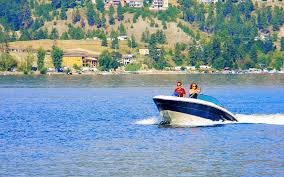Boating Safety Tips
As summer winds down, you might enjoy the final few weeks of gorgeous weather out on the water. Boating certainly is a popular hobby in North Carolina, with over 350,000 boats registered and miles of rivers, lakes, and open water.
However, boating accidents continue to occur at an alarming rate. According to state statistics, 166 boating accidents happened on the water, resulting in 21 fatalities in 2015. To protect the safety of your friends and family, remember the following tips so that you can return to shore safely.
Avoid Drinking and Boating
Operating a boat while intoxicated is illegal, just as operating a motor vehicle while impaired is. In many ways, it even more dangerous to boat under the influence. The sun and high temperatures can make people light-headed, even without alcohol in the mix. It is very easy to become confused or disoriented after having only a couple beers under the blazing sun.
To protect yourself, make your next outing alcohol-free. However, if your guests want to drink, then remember not to have even a sip while you are operating the boat. You also should not drink while on shore, since you might go out in the boat again.
Have Sufficient Life Jackets
The law requires that you have at least one life vest for each person. Children under age 13 also must wear them while out on the boat. Before heading out, double check your life vests for any holes in the lining. For added safety, wear the vest or have it close at hand for the entire ride.
Get Sufficient Rest
Boating can be exhausting. The elements can conspire to cause you to feel tired, and many people eat large quantities of food either on the boat or on shore before heading out. Eating too much can cause fatigue, leading boat operators to make critical errors that can cause injuries. If possible, split up the captain duties with someone else so that you do not get too tired, and never be afraid to end a trip early if fatigue warrants it.
Boat Safely
If you are in a “No Wake” zone, then you must travel so slowly as to not create a wake. Look for signs or buoys that designate a certain area as a no wake zone and follow the law.
Also, pass vessels with care. If you are being passed, remember to maintain your course and speed. If you are passing another vessel, make sure there is enough space so that you do not collide.
Create a Float Plan
You should let people know that you are going out on the water so that they can notify the Coast Guard if you do not return. The North Carolina Wildlife Resources Commission recommends that you create a float plan and leave it with someone you can trust. This plan should include essential information, such as survival equipment on board and a list of passengers, as well as when you plan on returning.
Injured in an Accident? Speak to a Boating Accident Lawyer in Wilmington
If you or a loved one has suffered an accident on the water, you might be entitled to compensation for your injuries. At Hodges Coxe Potter & Phillips, we can analyze the collision and determine whether you have a legal claim for compensation. Contact us today to schedule your free consultation.